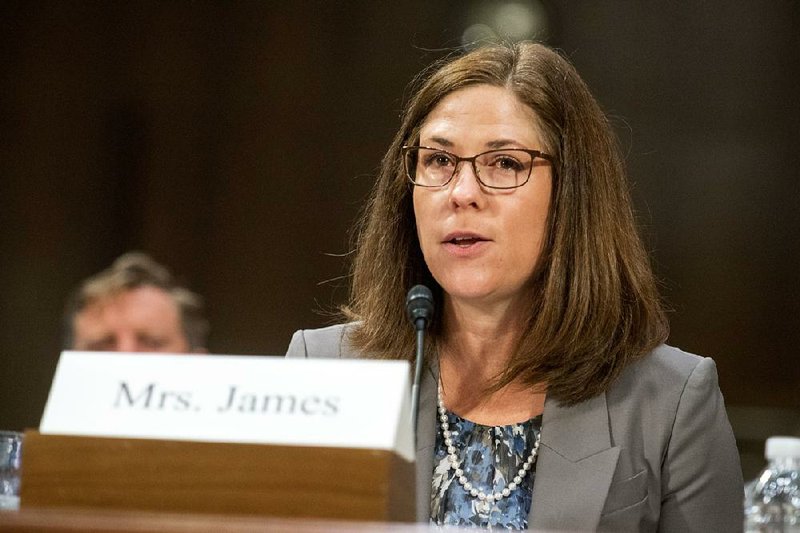WASHINGTON -- Jennifer James, a fourth generation rice farmer from Newport, testified before the U.S. Senate Agriculture Committee this week, telling lawmakers about some of the challenges her industry faces.
The hearing was titled: "Commodities, Credit, and Crop Insurance: Perspectives on Risk Management Tools and Trends for the 2018 Farm Bill."
A member of the USA Rice Farmers board of directors, James said these are lean times for rice growers.
"Unfortunately, rice growers have been forced to operate at or below their cost of production for the last three years. For young farmers, there's been little opportunity to build equity. The [U.S. Department of Agriculture's] most recent price forecast for 2017 shows a 36 percent decline since the 2014 farm bill passed," she said.
Expenses, on the other hand, remain high.
"The 2018 crop year is forecast to have some of the highest rice production costs on record," she said.
Rice is grown in eight states on 3 million to 4 million acres, she said. Half of American-grown rice comes from Arkansas, she added.
"Rice farming is a longtime commitment," she told the senators. "We intend to ride out the storm, but we could not do so without the safety net that the Price Loss Coverage program provides."
James emphasized the importance of the Price Loss Coverage program, which was contained in the 2014 farm bill.
It protects farmers, providing payments if the average price for the commodity in a market year drops below the amount set by statute.
"It's really just at a level to keep us treading water," she said in an interview Thursday. "It has been lifesaving, business-saving for rice farmers in Arkansas the last few years."
James and her relatives farm 6,000 acres in Jackson and Woodruff counties, growing rice, corn, soybeans as well as grain sorghum and wheat on occasion. The family has been tilling the Mississippi Delta soil for well over a century on land her great-grandfather bought in the late 1800s.
As a teenager, James was determined to leave agriculture behind.
After high school, "I was not coming back to rural Arkansas. I was going to be a lawyer and go to the city," she said.
She went to Fayetteville to study accounting, but soon had second thoughts.
"It only took me a semester to change my major to ag business, so it happened pretty quickly," she said.
She quickly realized where she wanted to spend her life.
"There's just something about the flat Delta and being with my family, being able to contribute to the legacy and the heritage of my family that just drew me back home," she said.
Now she oversees the farm's business operations, she said, essentially acting as its chief financial officer.
This was James' first testimony on Capitol Hill. She sat on a panel beside corn, soybean, wheat and cotton farmers.
"I was very honored to be able to represent the rice industry in that way, but it was nerve-racking, for sure," she said.
The stress didn't knock her off stride, she said.
"When you love something and it's important to you, you are able to go into those intimidating situations and find a calmness," she said.
James was testifying on behalf of the USA Rice Federation, the national trade association.
Ben Noble, executive director of the Arkansas Rice Federation, gave James' testimony high marks, calling her "a great ambassador for the Arkansas rice farming community."
U.S. Sen. John Boozman, R-Ark., who serves on the committee, said James "did a wonderful job" and represented Arkansas well.
With the farm bill, "It's not about just a bunch of numbers. It's about real people and their families," he said. "I think Jennifer was able to tell how this ... affects real people."
Business on 07/28/2017

